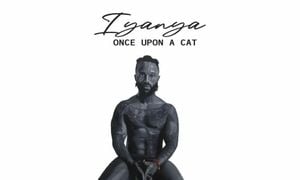Police are facing considerable backlash after journalist Allison Pearson was subject to investigation over comments made on social media relating to alleged "incitement to racial hatred." The incident unfolded last Sunday, dubbed Remembrance Sunday, when Essex Police officers visited Pearson at her home unannounced, informing her of the investigation stemming from one of her now-deleted posts on X, formerly known as Twitter.
During the visit, which took place as Pearson prepared to attend a memorial service, the officers did not disclose specifics about the post under scrutiny. The police stated they had no obligation to reveal the details of the complaint, but Pearson claims they instead mentioned it was about a non-crime hate incident (NCHI). This term describes instances perceived to be motivated by hostility, yet do not amount to illegal activity.
Feeling caught off guard, Pearson said she was "dumbfounded and upset" by the unexpected police presence at her doorstep. The police's claim, according to her, suggested the investigation was more benign than it turned out to be. While Pearson believed she had simply been contacted over potential free speech issues, Essex Police clarified the investigation pertained to inciting racial hatred—a serious allegation.
"How could I not be shocked?" she recounted, emphasizing her deep discomfort with the police knocking on her door seemingly to question her about her online expressions. The content of the post—over which the complaint was lodged—remains unclear to her, adding to the unease of the situation.
The controversy has heightened discussions around free speech and the role of police investigations concerning social media posts. Many political figures quickly rallied to Pearson's defense, raising alarms about the potential chilling effect this incident could have on discourse. Former Prime Minister Boris Johnson expressed anger over the police’s actions, describing them as "appalling." He questioned how the nation could continue to promote free speech when individuals like Pearson were being investigated for their tweets.
Supporters, including prominent Conservative figure Kemi Badenoch and other members of Parliament, have underscored their concerns about police overreach. Johnson noted the irony of police officers engaging with journalists over social media comments when they are often too stretched to address rising crime rates, such as burglaries and assaults.
Adding to the growing tension, Pearson described the police's failure to specify what exactly she was accused of as both unusual and unsettling, leaving her feeling like she was ensnared in some bureaucratic nightmare. “Okay, you’re here to accuse me of causing offense, but I’m not allowed to know what it is. Nor can I be told whom I’m being accused by? How am I supposed to defend myself, then?” she reported saying, reflecting the Kafkaesque nature of her experience.
Notably, Pearson’s original post related to the contentious events surrounding the terrorism from Hamas on October 7 and pro-Palestinian protests held later. The specific mention of these charged issues adds layers of complexity to the investigation, as responses to such highly politicized topics can evoke passionate and intense reactions.
Essex Police have stated they acted on public complaints, which legally obliges them to investigate potential offenses. They have publicly defended their choice to visit Pearson based on this requirement, insisting they captured the incident on body-worn video to substantiate their claims of professionalism during the visit.
Police spokespersons emphasized they are conducting investigations based on legal standards and maintain records of all incidents, even those categorized as non-crime hate incidents. Such records are meant to help prevent future harm, supporting the need for oversight on potentially dangerous expressions.
The dynamics of this case have sparked intense discourse surrounding free expression, censorship, and how police navigate the sensitive territory of social media expertise. With various political figures weighing in, there are calls to reevaluate laws related to non-crime hate incidents and how they intersect with free speech. Shadow Home Secretary Chris Philp, for example, linked Pearson's experience with broader issues of civil liberties and community policing.
Despite police claims about their impartiality and responsiveness to public feedback, critics argue they risk infringing upon individual rights through overly cautious interpretations of vague social media expressions. The tension between the need for public safety and the preservation of free speech adds to the complexity of police work today.
Following the incident, Essex Police submitted complaints to the Independent Press Standards Organisation (Ipso) about what they deem inaccurately reported aspects of the interaction. Their statement implied frustration with how the media characterized the investigation and its purpose.
Within this rapidly changing information environment, this incident highlights the challenges of ensuring safe communication online without crossing boundaries related to free expression. The discourse continues to evolve, with prominent media figures and caregivers for public discourse increasingly taking stances on where lines should be drawn.
While Pearson plans to cooperate with police and participate voluntarily within any interview, her experience signifies the growing scrutiny and apprehensions associated with social media interactions. This case is indicative of broader societal frustrations over how police manage alleged hate speech, especially within the charged political atmosphere of recent events.
Overall, the intersection of crime, free speech, and privacy is creating significant challenges for policing authorities, prompting necessary conversations about how society values speech within free democracy. The ramifications of this incident could resonate far beyond Allison Pearson’s case as society grapples with these pressing issues.



